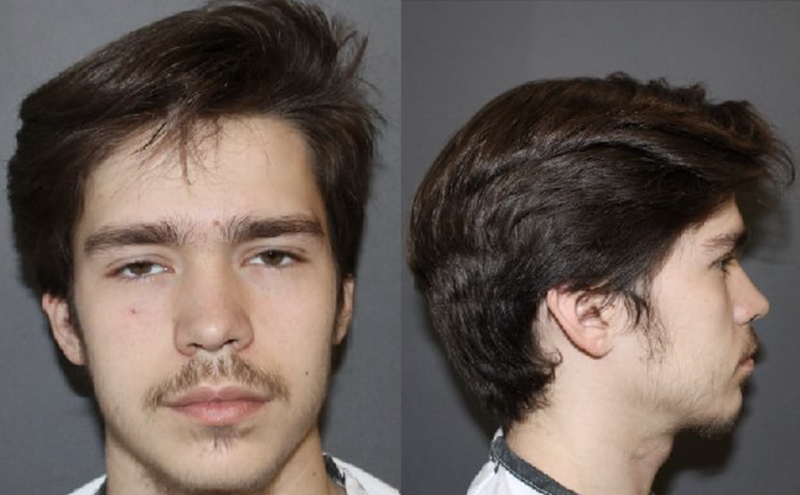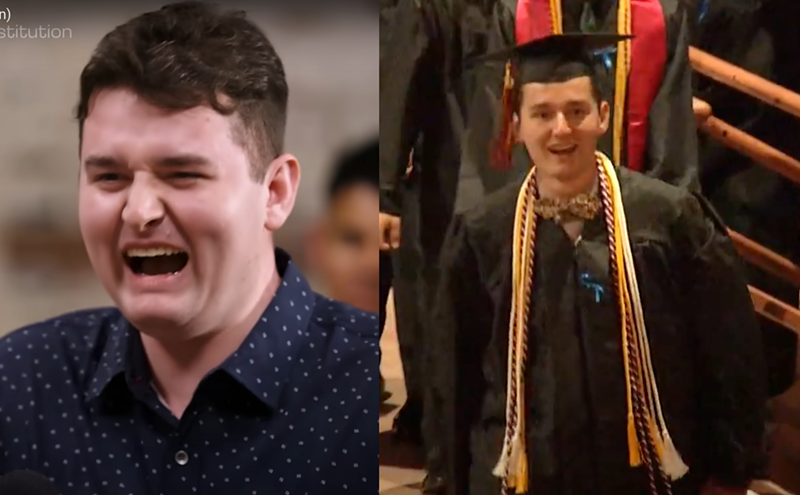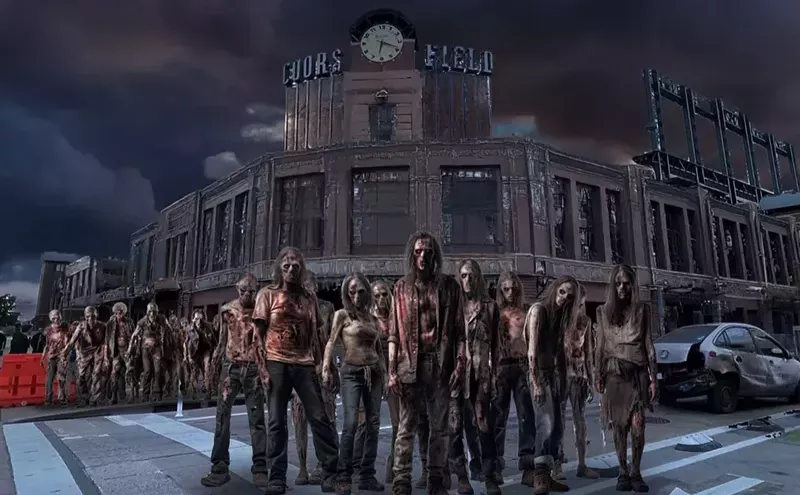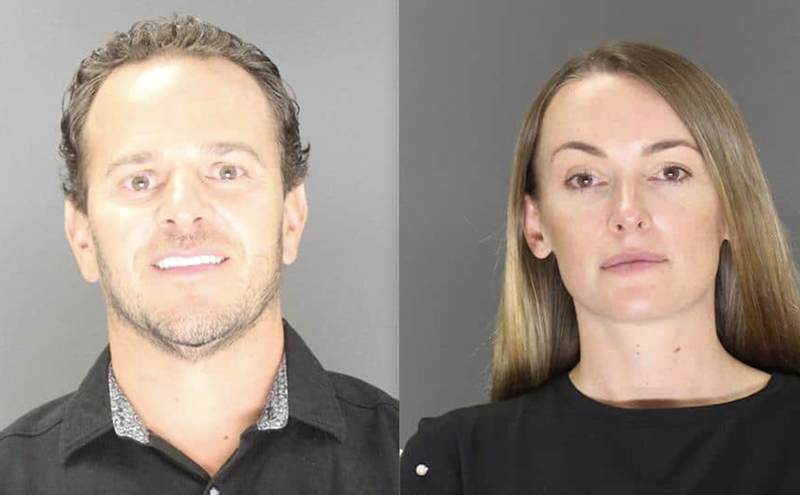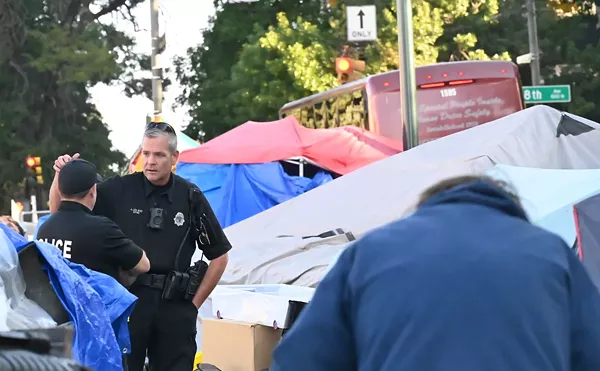"We identified individuals who have been victims of police brutality," Rathod continues, "and victims who had difficulty with the internal affairs process. These were people who filed charges of excessive force by police officers, or police officers lying, and then the internal affairs bureau would either ignore them or whitewash any investigation."
Among the affidavits is one by Westword contributor Britt Chester, identified under his given name, Jonathan Chester. In January 2011, Chester wrote in this space about getting into a confrontation with a cop after nearly being hit by a car. There's also the tale of Max Ford, which fits the parameters Rathod outlines above.
At about 1:30 a.m. on a July 2007 evening, according to Ford's affidavit, he and his girlfriend were leaving Herb's Hideout when they saw several police cars with their lights on parked next to their vehicle, with officers pointing their weapons at a vehicle they'd stopped. Because the activity prevented them from getting to their car, they waited against a wall -- at least until one of the cops allegedly grabbed his girlfriend by the face and shoved her to the ground before roughly handcuffing Ford.These actions reportedly caused Ford's girlfriend to have a panic attack marked by gagging and spitting -- after which a female officer is said to have slammed her against a pole while declaring that the spitting was disrespectful. "Not only did they arrest us for nothing, they assaulted and mocked us," Ford says in the affidavit.
The pair were arrested for obstruction of justice and disobeying a lawful order, prompting Ford to complain to internal affairs. But when filing the report, he felt like the investigator tried to intimidate him into dropping the matter. States Ford: "It really seemed like officers at lAB were on the same side as the officers who wrongfully arrested us. It was basically like talking to the same officers who had assaulted us and charged us with crimes we didn't commit." He adds that the incident made him want to move out of Denver.
Such tales are intended to prove that "Denver should be a party in this case," Rathod says. For a judge to agree, "we have to show a custom, policy and practice" of excessive force and other sins, "and one way to do that is to show that Denver tolerates police brutality -- that Denver fails to discipline its police officers, that Denver fails to investigate its police officers who've been alleged to have engaged in inappropriate conduct."
Page down to read statements by Denver's former Independent Monitor and Manager of Safety. Rathod's firm also collected depositions from former Internal Monitor Richard Rosenthal and ex-Manager of Safety Charlie Garcia, "who talk about problems within the internal affairs bureau and how they fail to properly investigate cases, how they're improperly trained and use leading questions that suggest answers. And they also talk about the Civil Service Commission," which determines whether fired officers should stay fired, "and how it's resulted in a culture that encourages officers to, in essence, engage in improper conduct, because when one officers sees he's not going to get disciplined for that kind of conduct, others will be encouraged to engage in that same conduct."Not that Garcia and Rosenthal paint the DPD as guilty in every instance. At one point in his deposition, also on view below, Garcia says, "I never saw that there was any sort of general pattern of any particular -- what I saw was differing definitions of excessive force, and that is -- that makes it very difficult."
However, Garcia was more definitive in another exchange:
Q. As the former manager of safety, when you were reviewing excessive force cases, did you observe a pattern of officers failing to report or failing to fully report fellow Denver police officers' use of excessive force?A. I did.
Garcia also suggested that excessive force was almost twenty years in the making in this observation:
Let me give you my personal opinion. Acceptance of past practices, which were certainly not best practices. I firmly believed that the summer of '93 [also known as the Summer of Violence] caused the Denver Police Department to begin some pretty heavy handed tactics to try to clean up the gang problem in Denver. And to a large extent a lot of the officers that came out of that period of time continue to use those heavy handed practices in situations where they weren't warranted.As for Rosenthal, he's extremely critical of the police department in the following statement from his own deposition, shared below.
And what I saw was a -- I had great concerns because most of these cases were reported by people who had already been told by supervisors the officers had a right to do what they did, and yet they continued to push. And we knew that there would be -- we were concerned it was the tip of the iceberg, that there were all these other cases out there where people were convinced by supervisors that officers had gone in lawfully and they had not, but they never made a complaint. The only way anybody ever found out about this was through a citizen complaint in the vast majority of the cases. So I was concerned about a pattern and practice of violating people's rights in entries into residences.I was also concerned specifically about the use-of-force cases, the lack of integrity in the investigation of the use-of-force cases, and the refusal from the Internal Affairs Bureau or the department to follow up online during the course of these cases. We call it in the department departing from the truth or commission of a deceptive act.
And what I saw, again, was this potential systemic problem where officers were permitted to use inappropriate force on the street, were not held accountable, would lie to Internal Affairs about it and, again, were not held accountable.
What I saw was a manager of safety who reacted very negatively to my report, my final report, where I publicly reported that was happening, who seemed to have no interest in fixing the problem. Frankly, had he simply said, "I understand the concerns of the Monitor, I share the concerns, and I'm dedicated to ensuring that the -- that this gets fixed," I would not have called for Department of Justice investigation.
In addition, Rathod highlights a report offered by Dan Montgomery, former Westminster police chief, which was commissioned by the plaintiffs. "It's a long report, and mostly it talks about this case," Rathod says. "But the end of it talks about custom, policy and practice, and what he calls Denver's 'cowboy sub-culture.'"
Page down to read the "cowboy sub-culture" excerpt: Here's part of Montgomery's conclusion. Note that the italics are in the original:It has been my experience over my 50 years in the law enforcement arena, that in many police departments, especially large departments, there exists a sub-culture of officers who tend to be the cowboys of the organization, doing this the way they want to do them regardless of what the organization says. Those who compose this cowboy sub-culture often cross the line in terms of the physical force they employ to subdue arrestees and deal with physical confrontations. They are the ones who are inclined to make attitude arrests for "contempt of cop" and then after the arrest, find the appropriate violation to put on the summons or booking sheet. They are the ones who receive multiple citizen complaints regarding their attitudes, demeanor, and the force they employ. And when confronted, these sub-culture cowboys most often tend to be deceptive, unwilling to accept any responsibility for their actions and the actions of their cowboy colleagues, and are not prone to change their ways.Unfortunately, these cowboys exist in most police organizations, but fortunately, they are a significant minority of the total police population. As a command officer and as a chief of police, I have dealt with these sub-cultures and was able to successfully eliminate them. Denver has failed to address this subculture, thereby endorsing it.
Denver rejects the assertion that it has a custom, policy and practice of tolerating excessive force. As such, attorneys for the city/county have filed a motion to be removed as a party of the lawsuit. Replies and rebuttals from both sides followed, and Rathod says "we're now waiting for the judge to rule on this issue" -- a decision he expects to come in the next month or two.
Page down to read motions, depositions and affidavits related to the Denver Diner case and claims of systemic toleration of excessive force in the Denver Police Department.
More from our News archive: "Denver Diner police beating: Lawsuits accuse Denver Police Dept. of cover-up (PHOTOS)."



